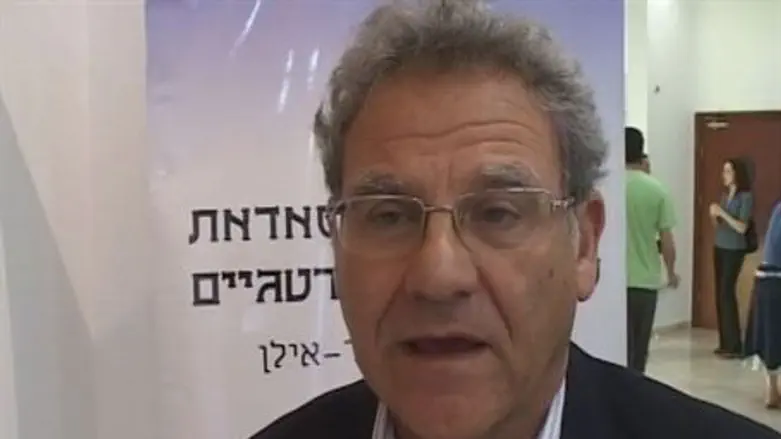
The “two-state solution” doesn't work – and even Palestinian Authority Arabs know it, according to Professor Efraim Inbar of Bar Ilan University.
“The paradigm being touted” where Israel and a Palestinian Authority state would share the territory west of the Jordan River is unworkable, Inbar said. “It hasn't worked in the past and won't work in the future. It may be time for a different paradigm,” he said.
Inbar, director of the Begin-Sadat Center for Strategic Studies (BESA) at Bar-Ilan University, was speaking Wednesday at a conference at Haifa University discussing the outcome of the Oslo Agreements, 20 years after they were signed.
The agreement, signed by former Prime Minister Yitzchak Rabin and PLO terror head Yasser Arafat, led to the creation of the Palestinian Authority, which was meant to be a period in which the PA would organize itself for statehood.
But the PA is not ready to be a state – because even at this preliminary stage, the Authority is a flop. Based on international and historical standards, said Inbar, “a state is a state if it is the only entity in a land that can legally act in a violent manner,” with all others in the state subject to the rule of law. “From that perspective, the PA has failed,” he said, because numerous terrorist groups operated independently, with the Authority's ostensible leadership unable to do anything to stop it. “Based on those standards, there are numerous Arab states that have failed as well,” he added.
The PA is full of strife, with rival groups fighting each other for religious, political, economic, and criminal reasons. “Usually conflicts of these kind are resolved when one side gets tired of fighting and lays down its arms, but in this case neither side shows any sign of giving up. Just the opposite,” he said. “On all sides there is a strong motivation to continue fighting and even to die for their causes.”
Besides the strife in the PA, Israel and the Authority are so far apart in their negotiation stances that there is almost no chance they will be resolved.
For these and other reasons, Inbar said, the current situation – a status quo in which the PA controls the civil life of Arabs in its jurisdiction, with Israel responsible for overall security – is the best solution for everyone. “It's good not just for Israelis, but for Palestinians, too,” he said. “The Palestinians look at the failed Arab states” like Syria and Egypt “and understand that things could be much worse for them.”
And it's not just Israel and the PA that have come to this conclusion, Inbar said: Slowly, the rest of the world is coming to realize that the current status is the most workable one for the long term. “The Palestinian issue is becoming less important on the international stage,” he added, “and as a result there is less pressure on Israel to agree to setting up a PA state.”
Professor Inbar joins a growing list of Israeli academics, politicians and activists calling for a rethink of the current "Two State Solution" model, which would see a Palestinian Arab state established in Judea and Samaria, alongside the large-scale deportation of local Jews.
His comments come amid claims that the Obama administration plans to impose a "deal" of its own, along the "Two State Solution" paradigm, in the event that talks between Israel and the Palestinian Authority fail.